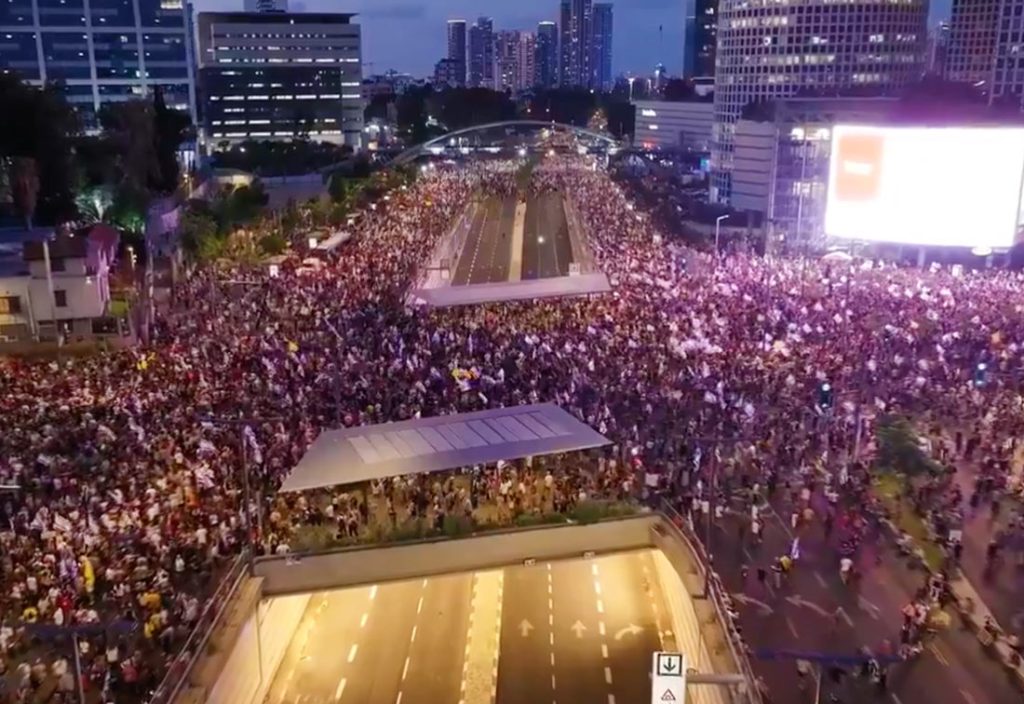In an unprecedented show of public discontent, Tel Aviv has become the epicenter of massive protests over the weekend, with estimates suggesting that up to 350,000 demonstrators took to the streets.

The protests, which have been some of the largest in recent months, are directed against Prime Minister Benjamin Netanyahu, focusing on his handling of the hostage situation with Hamas in Gaza.
The catalyst for the demonstrations was the grim discovery of six Israeli hostages found dead in Gaza, a tragedy that has fueled nationwide anger and grief. Among the deceased was an Israeli-American.
The protesters, including the relatives of the hostages, demanded a ceasefire deal to secure the release of over 100 hostages still held by Hamas.
The atmosphere in Tel Aviv was charged with emotion, with protesters chanting slogans like “We won’t abandon them” and “Bring them home,” reflecting a deep frustration with Netanyahu’s government.
The demonstrations saw various forms of civil disobedience, including the blockade of major highways, which led to confrontations with police. Reports indicate that police used skunk water, a non-lethal but foul-smelling liquid, to disperse crowds.
The protests have not only been about the immediate crisis but also reflect broader dissatisfaction with Mr. Netanyahu’s policies, especially his stance on maintaining control over strategic routes like the Philadelphi Corridor, which has become a significant sticking point in ceasefire negotiations. Critics argue that this insistence might be prioritizing geopolitical strategy over the lives of the hostages.
In response to the public outcry, Israel’s largest trade union, the Histadrut, called for a general strike, marking a significant escalation in pressure tactics against the government. This strike, the first since the onset of hostilities with Hamas, aims to paralyze the administration, pushing for a resolution to the hostage situation.
The international community has also taken note, with U.S. National Security Adviser Jake Sullivan expressing commitment to working around the clock for a deal to release the hostages.
Former U.S. President Donald Trump, via X posts, blamed the current U.S. administration for the situation, showcasing how the hostage crisis has become a point of international political contention.
These protests in Tel Aviv illustrate a critical moment for Israel, where public sentiment is pushing for decisive action from Netanyahu’s government.